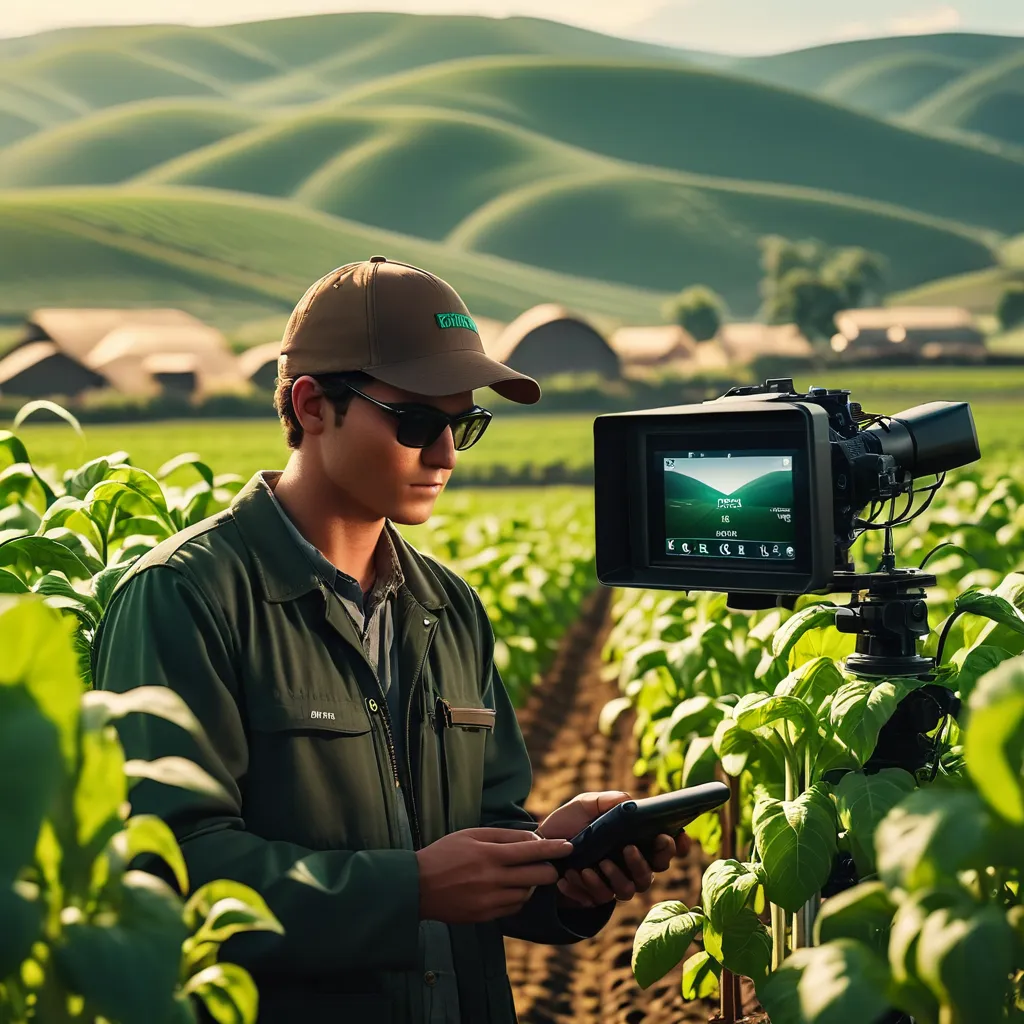Blog

Role of the Metaverse in Promoting African Agriculture
The metaverse is a virtual world that is rapidly becoming a reality, offering new opportunities for various sectors, including agriculture. In Africa, the metaverse has the potential to revolutionize agriculture and promote sustainable development. This article explores the role of the metaverse in promoting African agriculture, highlighting its benefits and potential challenges.
Metaverse and Agriculture
The metaverse can help farmers meet daily challenges and promote their produce, dairy, and meat by providing technology tools that enhance knowledge, enable the implementation of new ideas, and educate consumers. The metaverse provides a platform for farmers to showcase their products and connect with buyers and other industry players, which could be a more efficient and cost-effective way to connect with potential partners and customers, particularly in the current environment where in-person events are difficult to hold due to COVID-19.
Virtual Farming Community
In the virtual world, learning happens in real-time through collaboration. Farmers can meet in the metaverse to discuss important topics affecting their industry as a whole. This allows shoppers to save time and money on groceries while still eating well-balanced meals at home every night! Virtual farming communities can provide a platform for farmers to learn from each other, share best practices, and collaborate on projects. This can help promote innovation and improve the sustainability of African communities.
Virtual Farm Tourism
The metaverse can also be used to offer virtual agritourism experiences to the public, such as virtual farm stays or virtual tours of wineries. This can be a way for farmers to diversify their revenue streams and attract more customers. Virtual farm tourism can help promote awareness of agriculture and its importance to the African economy.
Virtual Support for Rural Communities
The metaverse could be used to provide virtual support and resources to rural communities that may be isolated or have limited access to resources. Farmers could use the metaverse to connect with agricultural experts, educators, and other resources that could help them improve their operations and the sustainability of their communities. Virtual support for rural communities can help promote inclusive development and reduce poverty in rural areas.

Virtual Farming Equipment
John Deere's IoT-enabled agriculture equipment can be equipped with sensors that collect data about soil conditions, weather, and other factors impacting crop yields. This data can be used to optimize planting and fertilization schedules and improve the efficiency of farming operations. Virtual farming equipment can help promote precision agriculture and reduce waste in African agriculture.
Challenges and Opportunities
While the metaverse offers many opportunities for African agriculture, there are also challenges that need to be addressed. These include the need for robust broadband infrastructure, skill development, and inclusivity. Failure to address these challenges could expose Africa to imminent dangers and catastrophic consequences. However, with the right policies and investments, Africa can harness the potential of the metaverse and promote sustainable development in agriculture.
Conclusion
The metaverse has the potential to revolutionize African agriculture, promoting sustainable development and inclusive growth. By providing a platform for farmers to connect, learn, and collaborate, the metaverse can help promote innovation and improve the sustainability of African agriculture. However, to realize this potential, Africa needs to address the challenges of broadband infrastructure, skill development, and inclusivity. With the right policies and investments, the metaverse can help Africa build a brighter, more promising future for its people.
Subscribe to our Newsletter
Metaverse insights and opportunities, Community events, and projects straight to your inbox!

Copyright©Metameta Digital. Powered by Partner2pilot. All Rights Reserved.

